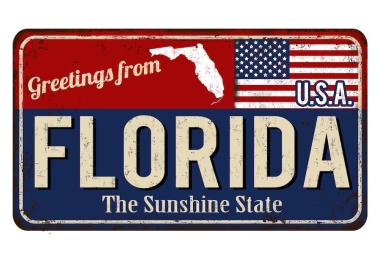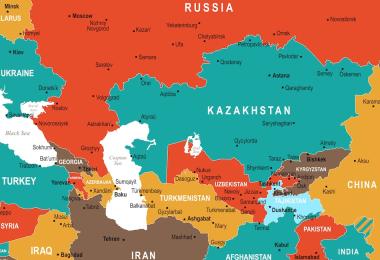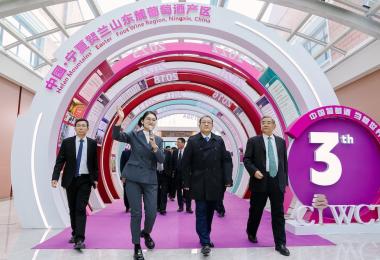The overall maturation of the Russian wine market and wine consumer is noted by many market players and yet, in 2015, wine still only represents a small part of overall alcohol consumption, ceding space to spirits and beer — leaving more space for the wine market to develop. The serious fine wine business, which depends on consumer maturity and knowledge, can at best only exist in a handful of Russian cities with a population of more than 1m. Among them are St Petersburg, Ekaterinburg, Novosibirsk, Kazan, Chelyabinsk, and Rostov-on-Don. Moscow continues to dominate the sales of many fine wine distributors, being the financial and lifestyle capital of the country.
The market continues to be heavily regulated by the government, which imposes numerous taxes and duties, while also demanding that importers and distributors comply with demanding import and sales license requirements, and duty excise stamps management. While it can be argued that regulation helps defend the market against counterfeit products, the complexity of the system is largely seen as a serious obstacle to market liberalisation.
Crimea’s annexation has also been a major factor in developing public debate and interest in the state of the local wine production. The Russian media, especially online, has been generally talking more freely about wines, inspiring people to find out more.
Notable distributors
Most wine importers in Russia started their businesses back in the 1990s with the opening of free trade after the Soviet Union collapse. While there are many, only a couple of dozen may be called “established” or “known-to-the- consumer” players. They operate with price markups of 100% to 200%; these prices include numerous taxes and duties, plus the cost of logistics, listings and marketing. Although entrance barriers in the importing business are high, market insiders believe there’s a place for everyone — once you’re there.
While several major players retain their leadership with great multipurpose portfolios, it’s the smaller-scale, niche wine importer and distributor Vinoterra that seems to inspire many with its business practices, management and wine selection. The company’s general manager Vladislav Volkov and his team have been instrumental in championing terroir-driven wines from Germany, Austria, Italy, Portugal and Spain.
Other notable CEOs of major wine distributors are Maxim Kashirin of Simple, Dmitry Pinsky of DP-Trade, Valery Filatov of JSC United Distributors, Mikhail Bodukhin of The Fort Company and Vadim Dobrynin of Eurowine.
Some retail chains have also successfully developed an importing side to feed their own network, a major example being Maxim Koscheyenko’s premium retail chain Azbuka Vkusa (“the ABC of taste” in Russian) which has developed the business despite the weak economy. New, smaller, specialist companies — Grape, Art Wine, Wine Discovery and Clasica — have yet to prove their ability to withstand the pressure of the crisis and establish themselves firmly in the market. These companies currently offer limited portfolios, which will hopefully grow into a fuller range of wines.
Retailers
With the economic crisis undermining the position of Russian retailers, retailers have been moving in different directions with regards to their wine portfolios. The French multinational retailer Groupe Auchan has reduced its wine selection dramatically and is moving into a cheaper category, significantly downgrading their overall attractiveness to those clients ready to pay 800 to 2,000 rubles ($14.20 to $35.55) a bottle.
METRO Cash & Carry is another major player in the retail market. Its wine category manager Alexey Soloviev is apparently looking to become a wine market leader, through negotiating exclusive contracts for famous brands like Antinori.
Outside of Moscow, many regional retailers have reacted to the crisis by seeking to replace established labels from prominent importers with cheaper stocks from companies in crisis, such as Rusimport, which declared bankruptcy at the beginning of the year.
Specialist retail: Moscow
Despite the economic downturn, the owners of wine boutiques report that specialist retail sales are growing, both in the number of SKUs and in value. The new economic realities of 2015 have forced wine distributors to rethink their business practices and experiment. One consequence is the new trend of reaching out to consumers without intermediaries, and at a more intimate level. Unlike the specialised single importers outlets of the 2000s (Grand Cru of Simple, DP-Trade wine boutiques), a new wave of wine venues has emerged, blurring the boundaries between on-trade and specialised retail. An example is Sergey Minaev’s recently opened Khleb y Vino (“Bread and Wine”) wine bars, selling wines imported solely by MBG/Millennium wine company, which he co-owns, which therefore allows him to offer attractive prices. Minaev communicates with consumers via Facebook and Twitter in a way that’s unparalleled by any other Russian wine business.
Other businesses are following the practice of opening wine and food bars, for example the new importer Grape has established a wine bar right in Moscow’s central location, delivering food and a simple, but quality dining experience. No doubt this trend will continue through 2015 and further.
Specialised regional retail
Regional retailers are pushing boundaries with projects like Krasnoye y Beloe (“Red and White”) with a couple of thousand regional wine shops mostly delivering competitively priced wines at low margins, and driving volume instead of value. At the same time, they offer unbeatable prices for more sophisticated clientele with brands like Tignanello on sale. With so many shops opening, Chelyabinsk-based Sergey Studennikov, the owner of the network, seems to be attracting lower-segment regional consumer attention to wines of better quality and is looking to expand dramatically with the next five years.
The Bristol chain is also developing the lower-end segment of wine retail. Bristol specialises in cigarettes and alcohol sales and is currently owned by the Russian retail oligarchs from the tobacco retail business, Igor Kesaev and Sergey Katsiyev.
The Otdokhni (“Relax!”) chain is another promising wine-oriented regional network owned by Vladlen Altschuller. It currently consists of 130 shops around Moscow, the Moscow region and the city of Nizhny Novgorod.
Wine bars
While wine distributors are launching their own wine bars, independent wine bars’ owners are also rethinking their business strategies. Vladimir Perelman, the owner of the extremely successful I Like Wine bar is not only looking to increase the number of Moscow wine bars dramatically, but is also working on creating an independent wine portfolio for his network, to keep better control of margins and prices.
Xenia Karpenko of another successful wine bar, Wine Religion, is also looking to open new venues to satisfy the needs of the wealthy clients of Moscow’s extra-urban communities outside the centre of the city. In fact, Moscow and St Petersburg have so many interesting wine bars, that mentioning them all is not possible here.
Media
One of the most influential publications for promoting wine knowledge is Anna Maslovskaya’s The Village online magazine, which uses wine writer Anton Obrezchikov.
Igor Serdyuk, one of Russia’s most longstanding wine writers, continues to write for such publications as Forbes Russia, while also being involved in a new winemaking venture in Crimea.
Journalist and expert Denis Roudenko not only writes on a range of business, wine and spirits topics, but also runs his own wine tasting club, 750ml.
Vasily Shomov, the editor-in-chief of Aeroflot’s Premium business class inflight magazine is particularly known for his passion for wine, and never misses a chance to write about it, despite the regulations that mostly forbid discussion of wine brands in both offline and online media.
Wine journalist Dmitry Kovalev, based in the town of Pyatigorsk, is doing a great job of putting tons of information and interviews about Russian wines on his web-site NasheVino.ru.
The major national business newspaper RBC has been instrumental in delivering in-depth business interviews with leaders of the wine, spirits and beer segments of the market. Its editor Denis Puzyrev has been showcasing quality reporting for some years now. Also of note is Oleg Trutnev, editor of the business section at another leading newspaper, Kommersant. Simple Wine News remains a quality wine publication printed by a single wine company (Simple), with editor-in-chief Anastasia Prokhorova leading the team.
Local wine scene
Russian wine has been a hot topic in both the media and government discussions, following Crimea’s annexation, the subsequent ruble devaluation and the threat of an embargo on imported wines in mid-2014. Putting in place EU-like legislation that will let Russian wine made of Russian grapes flourish is something that many growers and winemakers await.
It’s important to note that the official attitude towards wine and the development of legislation is strongly influenced by the ties between Russian wine businesses and government officials.
Boris Titov, for example, is an ombudsman for entrepreneurship and small business development under President Putin and — at the same time — the owner of the major Russian winery Abrau-Durso, plus a chairman of the Union of Russian Winegrowers and Winemakers. The Union itself is headed and managed by Leonid Popovich, another prominent figure on the Russian wine scene, who has helped develop the intricate puzzle known as “business-government relations”. Wineries like Lefkadia, Fanagoria, Kuban-Vino, Villa Victoria, Myskhako, Gai-Kodzor, Burnier, Karakezidi and others lead the trail in developing quality Russian winemaking, often with use of local grape varieties.
Many Russian wineries use either European consultants or employ European winemakers full time, including Patrick Leon at Lefkadia, Herve Justin at Abrau-Durso, and Frank Duseigneur at Chateau Le Grand Vostock.
The appointment of Alexander Tkachev, governor of the southern Krasnodar region – a major Russian wine region – as the new Minister of Agriculture is seen by many as a promising sign for Russia’s wine future. Artur Sarkisyan, a former head sommelier for Ginza Project restaurant group in Moscow, is noted for promoting the culture of Russian wines, by organising a yearly exhibition in Moscow and by publishing a brief guide to Russian wines.
In Crimea, Pavel Shvets is known for his passion for artisanal approaches to winemaking and is putting a lot of effort to attract new owners to the vineyards around Sebastopol city.
Igor Samsonov, the owner of Satera winery, and winemaker Oleg Repin are showing positive results with their brand Esse — drinkable, complex and affordable wines.








